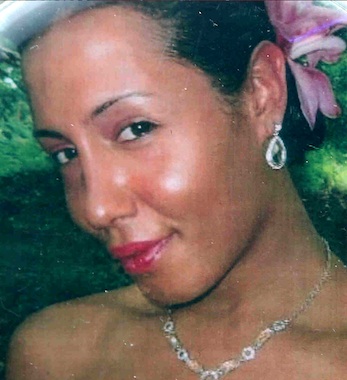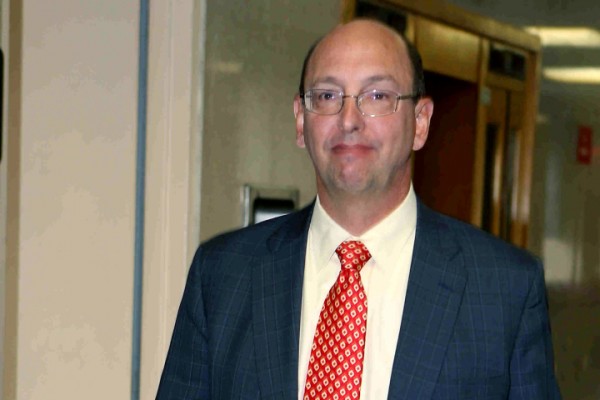
There are John Scarpas everywhere. There is a John Scarpa in every department of the federal government. There is a John Scarpa in every police department. Every four years, a John Scarpa is nominated to run for president. Our world is full of John Scarpas. The difference is that, unlike his doppelgangers, the actual John Scarpa stated the ethical beliefs that underlie the transphobia, whorephobia, and HIV criminalization policies carried out at every level of government around the globe out loud.
For those who missed it, John Scarpa was a Queens-based defense attorney for Rasheen Everett, the murderer of trans sex worker Amanda Gonzalez-Andujar. And while Everett acted out the hate in his heart by killing Gonzalez-Andujar for being transgender, his attorney acted out his own hate by way of his defense. From The Gothamist:
…defense attorney John Scarpa caught the ire of the judge when he argued against the victim’s character. “Shouldn’t that [sentence] [twenty five years] be reserved for people who are guilty of killing certain classes of individuals?” he reportedly asked, adding, “Who is the victim in this case? Is the victim a person in the higher end of the community?”
Scarpa later went on to accuse Gonzalez-Andujar of being a murderer herself for practicing prostitution even though she is HIV positive. This unabashed bigotry did not earn the favor of the judge or the jury, and Everett was found guilty of all three charges of murder, burglary, and tampering evidence.
Scarpa may appear particularly vile, to the general public and to the transgender community alike, but he is not an outlier in his field or in American society. All of the prejudices he argued for form the basis for government practices all around the world, whether they be the criminalization of condoms, the lack of housing for transgender and HIV positive people, or the lack of healthcare for those who are trans, HIV poz, and in the sex trades. We always have to fight long and hard to get the resources we need to survive.

All of the issues I listed above affect all three groups that people like Scarpa harbor prejudices against: transgender women, HIV positive people, and people in the sex trades. This is no coincidence: these injustices all stem from the belief that we are a lower class of individuals that don’t deserve to protect ourselves, don’t deserve housing, and don’t deserve healthcare. Othered, subalterns, social outcasts, whatever you want to call it, we are grouped together under the banner of “undesirable.” And while we may blast Scarpa for so utterly dehumanizing someone in our community, the reasons why mainstream society wants to shut him up are much more sinister. For at its heart, Scarpa’s advocacy for the murder of HIV poz trans women in the sex trades comes from the same ideology held by those in power in the United States. His tactless statements threaten to reveal the intentional implementation of inequality they work so hard to portray as natural and unavoidable.
As a trans woman who formerly worked as an escort and as someone with friends who are HIV poz, the need for solidarity among the marginalized seems readily apparent to me. Yet those of us with more privilege will often try to deny any common history with the struggles of other groups. Still, as we see from the murder of Gonzalez-Andujar, it is most often those who are simultaneously transgender, sex workers, and HIV positive that face the harshest oppression from society. Shouldn’t their issues, and consequently their voices, be put at the forefront of our struggles? I’m not advocating the formation of one giant intersectional group: after all, being transgender and being a sex worker are not the same thing no matter how many political similarities both experiences share. But we could all do better about stepping outside of our own identities and comfort zones and embracing the struggles of others in our community as our own. We need to join together in intersectional solidarity, as it is called in organizing: the practice of supporting issues that don’t directly affect us. It is not just the right thing to do: it is the smart thing to do. It gives us different perspectives to learn and grow from and solidifies alliances we need as mutually “undesirable” people.
So on the week of International Day to End Violence Against Sex Workers this year, I call on all my transgender sisters to support people in the sex trades and criticize people and groups like Cathy Brennan and the NYPD not just for being transphobic, but for being whorephobic. I call on HIV positive people to criticize the fact that both they and people in the sex trades are seen by the government as vectors of disease rather than as people. And I call on people in the sex trades, especially those who are transgender and HIV positive, to educate those outside of your sex worker community about the issues you face. It can be hard: some of the more whorephobic things I’ve heard have come from my white trans women friends. But that is exactly the reason why this work is important, because we cannot struggle together if we are leaving people or parts of people behind.
Thank you for this.
I stumbled on this blog by accident. It’s so upsetting that someone would attempt to devalue the life of another human being like that. As if the life of the rich and socially accepted are worth more. Disgusting.